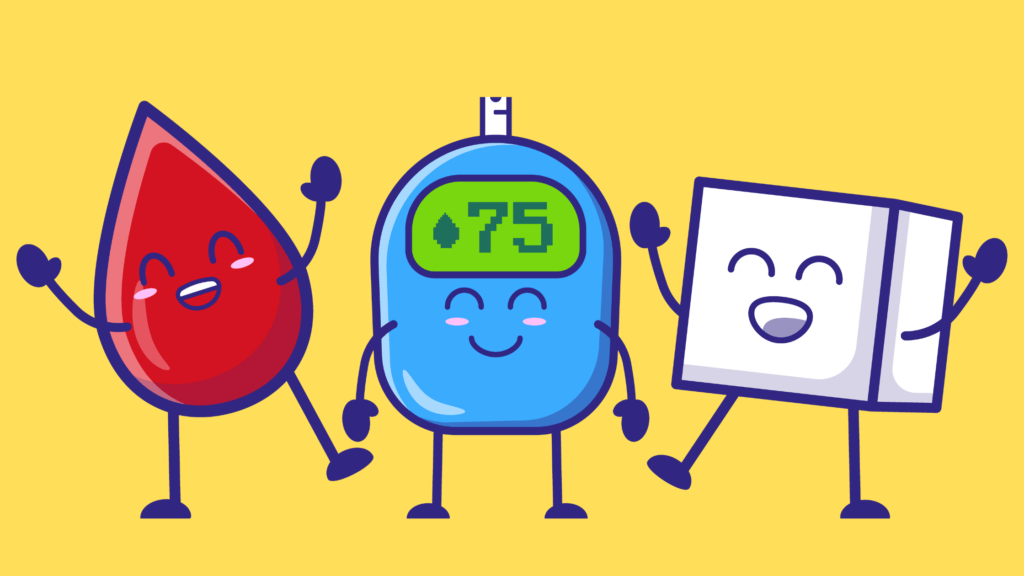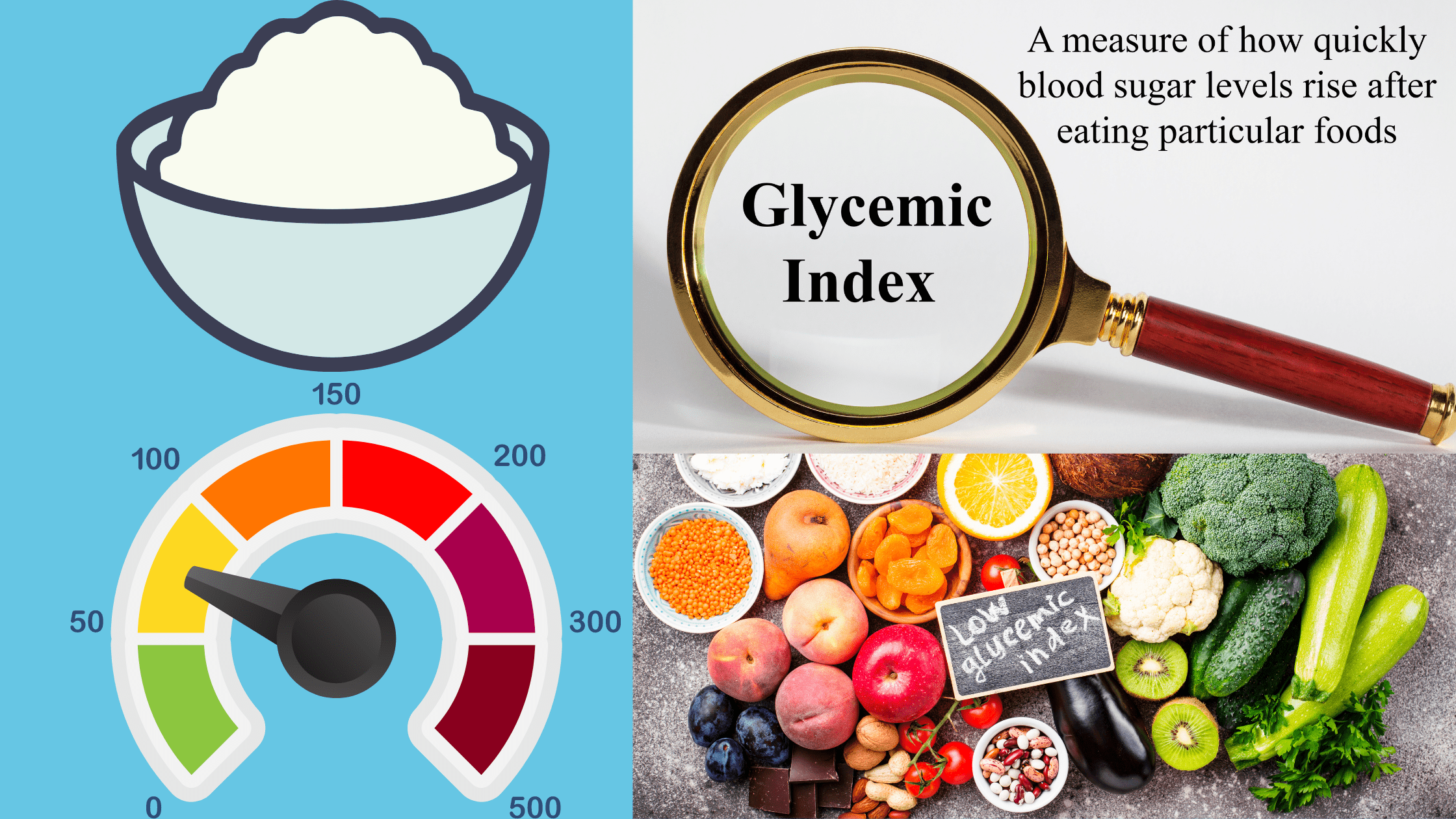If you’re one of the millions of people who suffer from high blood sugar levels, read on. This write-up will give you 8 tips to help reduce your blood sugar level immediately and keep it under control. However, there are times when despite your best effort, the blood sugar level can still get dangerously high and must be reduced immediately. A high blood sugar level can be dangerous and leads to complications. For example, high blood sugar levels can result in diabetic ketoacidosis (DKA), a medical emergency requiring emergency room visits.
Most Elevated Sugar Levels Can be Managed at Home
Most people with high blood sugar are not at risk of DKA and can manage their blood sugar levels with diet, exercise, and medications. However, if blood sugar levels are not monitored and managed properly, high blood sugar can lead to serious health problems such as DKA. Diabetic Ketoacidosis (DKA) is a life-threatening condition that requires emergency treatment.
A blood sugar level of 100mg/dL or less is considered normal. A blood sugar level of 100-125mg/dL is considered prediabetic, and a blood sugar level of 126mg/dL or greater is considered diabetic. If you have diabetes, a blood sugar level greater than 240 is dangerous and needs to be corrected immediately.
Here are 4 ways to reduce blood sugar levels immediately
While long-term control through the 8 tips we will discuss in this blog post is the best long-term strategy, when the levels stay high, and you need immediate control, these 4 ways are the most effective in quickly reducing your blood sugar level.
1. Take fast-acting insulin
One of the best and most effective ways to quickly reduce blood sugar levels is to take fast-acting insulin. Fast-acting insulin helps to lower blood sugar and also prevents high blood sugar from becoming even worse. If you are experiencing high blood sugar, talk with your healthcare provider about whether taking fast-acting insulin is a good option.
2. Exercise
Exercise is one of the best ways to lower blood sugar levels immediately. When you exercise, your body uses up the sugar in your blood. This can help lower blood sugar levels and prevent them from becoming too high. If you are experiencing high blood sugar, talk with your healthcare provider about whether exercise is a good option.
3. Drink water
Drinking water can help lower blood sugar levels and prevent dehydration.
When blood sugar is high, the blood becomes too concentrated, which results in dehydration as water is drawn out of the body through frequent urination. Unfortunately, when you are dehydrated, blood sugar levels relative to the overall fluid also rise. Therefore, drinking water can help reduce blood sugar levels quickly. In addition, drinking water regularly throughout the day can help keep you hydrated and prevent blood sugar levels from rising in the first place.
4. Go to the Emergency Room
Diabetes must go to the ER in dangerously high blood sugar situations because Elevated blood sugar levels can lead to severe complications, such as DKA. DKA is a life-threatening condition that requires emergency treatment. if you don’t have insulin at home because you are only taking pills for your diabetes, you must consider seeking help immediately at the closest ER. In addition, if you experience any of the following symptoms, seek medical help right away:
– Extreme thirst
– Frequent urination
– Nausea or vomiting
– Abdominal pain
– Fatigue
– Confusion or disorientation
If you experience any of these symptoms, do not hesitate to go to the ER. Early recognition and treatment of high blood sugar levels can decrease and prevent complications, including DKA and dehydration.
Now 8 Long term strategic tips to help reduce blood sugar levels.
1. Avoid sugary foods and drinks.
How to reduce blood sugar level immediately? To answer this question, we must start with things that raise blood sugar levels. Sugar is often vilified as a dietary villain, and with good reason. Consuming too much sugar can lead to weight gain, dental problems, and an increased risk for diabetes and other chronic illnesses. However, that doesn’t mean you must banish all sweets from your diet. Instead, moderation is essential when it comes to sugar consumption. When you do indulge, try to choose natural sources of sugar, like fruit or honey, over-processed foods, and drinks. And remember that sugary foods are often high in calories, so be sure to balance them with plenty of healthy fruits, vegetables, and whole grains. Following these simple guidelines allows you to enjoy the occasional sweet treat without jeopardizing your health.
2. Eat smaller portions more often throughout the day.
It’s no secret that we Americans love our food. From all-you-can-eat buffets to super-sized meals, we’re always looking for ways to get more bang for our buck. But when it comes to our health, bigger is not always better. Studies have shown that eating smaller portions more often throughout the day can benefit our waistlines and health.
One of the main advantages of eating smaller meals is that it helps to control blood sugar levels. When we eat a large meal, our bodies release a surge of insulin to process the sugar in the food. This can lead to a sugar crash a few hours later, leaving us tired and irritable. By contrast, eating several small meals throughout the day helps to keep blood sugar levels steady, preventing those peaks and valleys. This can lead to more stable energy levels and fewer cravings for sugary snacks.
In addition, eating smaller portions more frequently has been shown to boost metabolism. When we eat a big meal, our bodies work hard to digest all of the food. This process takes energy, and it can leave us feeling sluggish. Eating several small meals causes our bodies to work harder as well since it has to digest more food overall. But this extra work pays off in the form of increased calorie burn; studies have shown that people who eat six small meals per day burn more calories than those who eat three larger meals.
So next time you plan your meals, remember that less can be more. Smaller portions eaten more often will help keep your energy levels steady, and your metabolism revved up, leading to better health and weight loss in the long run.
3. Exercise regularly
Exercise is a critical component of diabetes management, as it helps to regulate blood sugar levels. For people with diabetes, blood sugar levels can fluctuate rapidly, making exercise a crucial tool for keeping them in check. When you exercise, your body burns glucose for energy, which lowers your blood sugar levels. In addition, exercise helps to increase insulin sensitivity, making it easier for your body to use insulin to process glucose. As a result, regular exercise can profoundly impact blood sugar control for people with diabetes. However, it is important to monitor blood sugar levels carefully when exercising, as potential spikes or dips can be dangerous. Talk to your doctor about how to manage your diabetes while physically active.
Exercise is quick and effective in lowering blood sugar levels. Exercise can lower blood sugar for 24 hours or more after you finish. In addition, regular exercise can help improve insulin sensitivity, which means your body will be better able to use insulin to move glucose from the bloodstream into the cells. All of this can help keep blood sugar levels within a healthy range and prevent high blood sugar from becoming a problem. Also, Physical activity causes the body to demand glucose for energy. As a result, the cells deliver glucose to the muscles, and blood sugar levels usually drop. For this to work, you need a form of exercise that gets your heart pumping faster than usual, like a treadmill run.
4. Drink plenty of water
High blood sugar levels can lead to various problems, including fatigue, brain fog, and increased cravings for sugary snacks. One of the best ways to reduce blood sugar levels is to drink plenty of water. Water helps to flush out excess sugar from the body, and it also helps to keep cells hydrated. In addition, water can help to reduce cravings by keeping the stomach full. For best results, aim to drink eight glasses of water per day. And if you struggle to drink that much water, try adding a squeeze of lemon or a handful of berries to your glass. Not only will you be getting the benefits of hydration, but you’ll also be getting a dose of antioxidants.
5. Choose whole grain foods over refined grains.
Refined grains have been milled, a process that removes the bran and germ. This results in a more refined grain with a softer texture, which also means that the grain has lost much of its nutritional value. In contrast, whole grain foods have been left intact, retaining the bran and germ. This results in a coarser grain with a more nutritious profile. Whole grains are a good source of fiber, vitamins, and minerals, while refined grains often lack these essential nutrients. For this reason, it is generally recommended to choose whole-grain foods over refined grains. While they may not be as flavorful or visually appealing, whole grains offer excellent nutritional benefits and can help improve overall health.
Whole grains are a good source of fiber, vitamins, and minerals, all of which can help to bring down blood sugar levels. Fiber helps to regulate blood sugar levels by slowing the absorption of sugar into the bloodstream. In addition, whole grains are a good source of essential nutrients like magnesium, zinc, and B vitamins. These nutrients help to support healthy blood sugar metabolism, which can help to keep blood sugar levels in check. Overall, choosing whole grain foods over refined grains can be a helpful way to manage diabetes and keep blood sugar levels under control.
6. Add healthy fats to your diet.
When it comes to blood sugar management, healthy fats are a crucial ally. Fatty acids help to regulate blood sugar levels by slowing down the absorption of sugar into the bloodstream. In addition, they play an important role in insulin production and sensitivity, both of which are essential for blood sugar control. Healthy fats can be found in nuts, seeds, avocados, and olive oil. Including these foods in your diet can help to keep blood sugar levels under control and improve overall health.
While it is true that fat has been demonized in recent years, the fact is that not all fats are created equal. Certain types of healthy fats can help to improve your health. One type of healthy fat is Omega-3 fatty acids, which are found in fish such as salmon and mackerel. Omega-3 fatty acids have been shown to promote heart and brain function and joint health. Another type of healthy fat is monounsaturated fat, which is found in olive oil and avocados. Monounsaturated fats can help to lower cholesterol levels and reduce the risk of heart disease. Finally, polyunsaturated fats, found in nuts and seeds, can help improve lipid profiles and reduce inflammation. So, to improve your health, don’t be afraid to add some healthy fats to your diet.
7. Include protein in every meal and snack
Protein is another essential nutrient when it comes to blood sugar management. Protein helps regulate blood sugar levels by slowing the absorption of sugar into the bloodstream and helping maintain stable blood sugar levels. In addition, protein is essential for healthy hormone production and insulin sensitivity, which are necessary for blood sugar control. Protein can be found in animal products like meat and dairy and plant-based products like beans and lentils. Including protein in every meal and snack can help control blood sugar levels.
8. Monitor your blood sugar levels

One of the best ways to manage blood sugar levels is to monitor them regularly. This means tracking your blood sugar levels before and after meals and at different times throughout the day. This can help you see how other foods and activities affect your blood sugar and allow you to make adjustments as needed. In addition, monitoring blood sugar levels can help you detect early signs of high or low blood sugar and address them before they become a problem.
BONUS TIPS:
If you are looking for a way to help manage your blood sugar levels, consider taking supplements. Herbs like ginger, cinnamon, and holy basil have been shown to help lower blood sugar levels and can be taken as supplements or added to food beverages. However, please talk with your healthcare provider before taking any supplements to ensure they are safe.
Conclusion:
You can do many things to help manage your blood sugar levels. Following the tips we have provided, such as eating healthy foods, monitoring your blood sugar levels, and including protein and healthy fats in every meal, can help keep your blood sugar under control and improve your overall health. If you are looking for additional ways to help manage your diabetes, consider talking with your healthcare provider about supplements that may be helpful.



